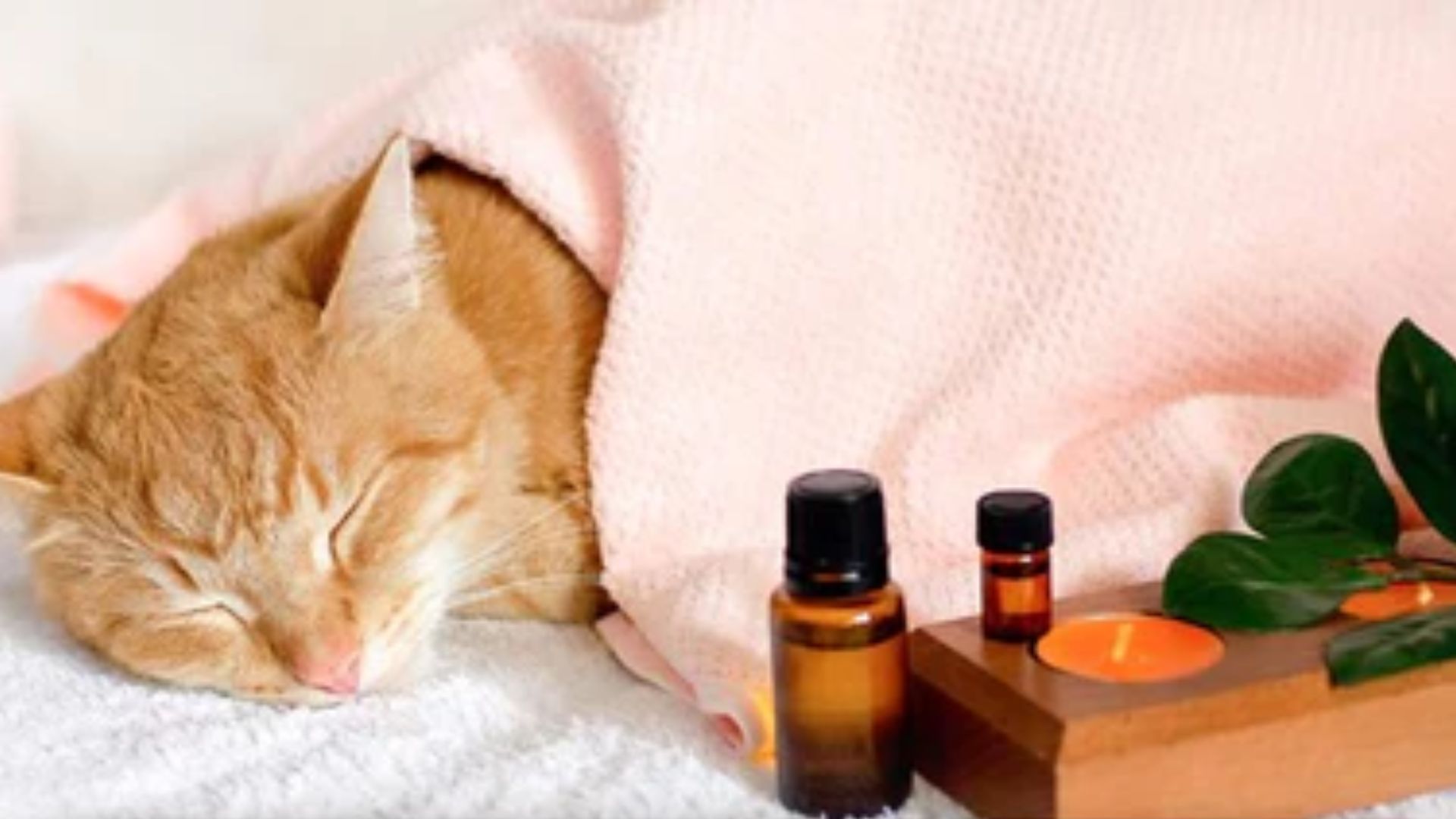
What essential oils are safe for cats ?
Essential oils that are safe for cats include rosemary, copaiba, helichrysum, oregano, frankincense, and cedarwood at diluted concentrations. Cats can also tolerate German chamomile, Roman chamomile, lavender, thyme, and valerian essential oils at very diluted concentrations.
However, it is important to note that even essential oils that are safe for cats can be harmful at certain concentrations, and it is essential to know all possible side effects before using them.
If a cat displays signs such as fatigue, dizziness, drowsiness, muscle tremors, reddened gums, drooling, breathing difficulties, or vomiting, it is crucial to discontinue using essential oils on or near them, give them a bath to wash away any potential residue, and seek expert advice immediately.
It is also important to avoid using essential oils on pregnant or breastfeeding cats, senior cats with chronic health conditions, or kittens. Essential oils should only be used on healthy, adult cats under the guidance of a veterinarian.
The benefits of using essential oils for cats
The benefits of using essential oils for cats include:
1. Repelling Ticks and Fleas: Certain essential oils act as natural tick and flea repellents, helping cats stay free from these pests.
2. Calming Effects: Some essential oils, like lavender and valerian, can have a calming effect on cats, reducing anxiety and promoting relaxation.
3. Anti-Inflammatory Properties: Essential oils with anti-inflammatory properties can benefit cats with conditions like arthritis or bruising by reducing inflammation.
4. Digestive Aid: Essential oils have been used by some cat owners to relieve digestive issues like diarrhoea, although it is crucial to consult a veterinarian before using essential oils for this purpose.
5. Promoting respiratory health: Essential oils like eucalyptus and tea tree can help support respiratory health in cats.
6. Overall Wellness: While more research is needed to definitively prove the benefits of essential oils for cats, many pet owners have reported improvements in their cats’ health and well-being when using essential oils properly and under veterinary guidance.
It is important to note that essential oils should be used with caution and in moderation, ensuring they are diluted properly and that the specific oil is safe for cats. Consulting a veterinarian before using essential oils on cats is highly recommended to ensure their safety and effectiveness.
Ways to use essential oils for cats
Some ways to use essential oils for cats include:
1. Diffusing: Diffusing cat-safe essential oils releases minute particles in the air that can be inhaled by cats, providing medicinal and therapeutic benefits. It is important to use essential oils in moderation and observe your cat’s behaviour for any signs of irritation or discomfort.
2. Topical Application: Essential oils can be topically applied to cats after diluting them with a carrier oil. It is crucial to dilute essential oils properly to ensure safety. Avoid applying essential oils directly to your cat’s fur or skin without dilution.
3. Acclimation: Allow your pets, including cats, time to adjust to the new scents and sensations of essential oils. Wear essential oils throughout the day, diffuse them in spaces where your pets relax, and let your pets smell the oils on your hands to help them acclimate to the scents gradually.
4. Dilution for Topical Application: The amount of oil and the level of dilution needed for topical application depend on your cat’s size. For cats and small dogs, use a carrier oil like V-6™ Vegetable Oil Complex to dilute the essential oil at a ratio of 9:1. Adjust the dilution ratio based on the size of your pet.
5. Avoid Toxic Oils: Some essential oils are toxic to cats and should be avoided, including tea tree oil, citrus oils, mint oils, and others. Always ensure that the oils you use are safe for feline companions and consult a veterinarian if unsure.
6. Consultation: Before using essential oils on cats, especially if you are unsure, consult a veterinarian with experience in essential oil use around pets. Veterinarians can provide guidance on the safe and appropriate use of essential oils for cats.
By following these methods and precautions, you can safely and effectively use essential oils to benefit your cat’s health and well-being.
Benefits of using essential oils for cats
Essential oils can have benefits for cats, such as repelling ticks and fleas, reducing inflammation associated with inflammatory joint and skin conditions, and treating certain infections in cats, like otitis externa.
However, it is important to consult with a veterinarian before using any essential oils to treat conditions in cats, as oils have been proven most effective when used in conjunction with conventional medicines. The safest way to use essential oils for cats is to diffuse them at very low concentrations, using a single drop of pure essential oil in a diffuser and giving your cat the option to leave the room if they so choose.
Some essential oils that are considered safe for cats include lavender, chamomile, helichrysum, copaiba, frankincense, and cedarwood, but they should be used in moderation and diluted with a carrier oil or water before use. It is important to avoid using essential oils directly on a cat’s fur, as it is not safe for them.
Essential oil diffusers may not be safe for cats, as they have sensitive respiratory systems and some oils can cause breathing problems or irritation. Certain oils are toxic to cats if ingested or absorbed through the skin, so it is essential to consult a veterinarian before diffusing essential oils near cats.
How to apply essential oils to cats
Essential oils can have benefits for cats, such as repelling ticks and fleas, reducing inflammation associated with inflammatory joint and skin conditions, and treating certain infections in cats, like otitis externa.
However, it is important to consult with a veterinarian before using any essential oils to treat conditions in cats, as oils have been proven most effective when used in conjunction with conventional medicines.
The safest way to use essential oils for cats is to diffuse them at very low concentrations, using a single drop of pure essential oil in a diffuser and giving your cat the option to leave the room if they so choose.
Some essential oils that are considered safe for cats include lavender, chamomile, helichrysum, copaiba, frankincense, and cedarwood, but they should be used in moderation and diluted with a carrier oil or water before use.
It is important to avoid using essential oils directly on a cat’s fur, as it is not safe for them. Essential oil diffusers may not be safe for cats, as they have sensitive respiratory systems and some oils can cause breathing problems or irritation.
Certain oils are toxic to cats if ingested or absorbed through the skin, so it is essential to consult a veterinarian before diffusing essential oils near cats.
Essential oil blends that can help with cat anxiety
Essential oils can be used to help with cat anxiety. The Mellow Cat Essential Oil Blend by LifeForce Pet Health is a blend of Lavender, Ylang Ylang, and Geranium essential oils that can help calm and soothe cats.
It can be used in a diffuser or with a Pet Collar Diffuser, but it is important to dilute the blend in coconut or grapeseed oil before use.
This blend is 100% Therapeutic Quality and formulated to naturally balance a cat’s mood and create a state of well-being. It is important to note that essential oils must always be diluted before use on feline companions and should not be used topically.
Side effect of essential oils for cats
The side effects of essential oils for cats can be severe and potentially life-threatening. Cats are particularly sensitive to essential oils, and exposure to certain oils can lead to symptoms of poisoning, including excessive drooling, shaking, tremors, lethargy, difficulty breathing, vomiting, collapse, seizures, skin irritation, and even organ damage like liver failure.
Essential oils can be toxic to cats through skin contact, ingestion, and inhalation, causing serious health issues such as liver failure, respiratory distress, seizures, and death.
It is crucial to keep cats away from essential oils, avoid using them in diffusers or cleaning products, and consult a veterinarian immediately if you suspect your cat has been exposed to essential oils and is showing any concerning symptoms.


